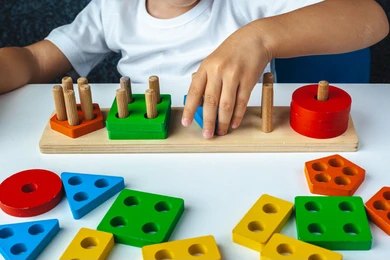- 8:30 am - 5:30 pm - Mon - Sun
- 8008333173
- Alluri Colony, Plot No 73, Injapur Rd, Hayathnagar, Hyderabad, Telangana 501505
Preschool education stands as a foundational pillar in the early development of children, offering a structured environment where young learners embark on their educational journey. This crucial phase bridges the gap between home and formal schooling, providing a nurturing space where children aged approximately 3 to 5 years old can grow, learn, and thrive. Let’s delve into what preschool education entails and why it is instrumental in shaping the future of our youngest learners.

What is Preschool Education?
Preschool education refers to the early childhood educational programs and experiences designed for children before they enter kindergarten. It focuses on holistic development, encompassing cognitive, social, emotional, and physical growth through age-appropriate activities, play-based learning, and interaction with peers and educators. Preschool lays the groundwork for academic readiness, socialization, and lifelong learning skills.
Key Components of Preschool Education:
1. Socialization and Peer Interaction: Preschool provides children with opportunities to interact with peers in a structured setting, fostering social skills such as sharing, taking turns, and cooperating. These early social experiences build the foundation for healthy relationships and effective communication.
2. Early Literacy and Numeracy Skills: Through storytelling, language-rich activities, and playful exploration, preschool introduces children to basic literacy (reading and writing) and numeracy (mathematical concepts like counting and shapes). This helps develop language comprehension, vocabulary, and early math skills.
3. Creative and Cognitive Development: Preschool encourages creativity and critical thinking through art, music, drama, and hands-on activities. These experiences stimulate imagination, problem-solving abilities, and spatial awareness, nurturing a love for learning.
4. Emotional Regulation and Self-Expression: Preschool supports emotional development by teaching children to identify and manage their feelings in a supportive environment. Activities like storytelling, role-playing, and discussions help children express themselves and develop empathy towards others.
5. Physical Development: Preschool promotes physical skills through outdoor play, gross motor activities (like running and jumping), and fine motor activities (such as drawing and manipulating objects). These activities enhance coordination, strength, and overall physical health.
The Role of Educators in Preschool:
Educators in preschool play a pivotal role in creating a positive and stimulating learning environment. They are trained to understand child development principles and employ teaching strategies that cater to the unique needs and interests of young children. They observe, assess, and scaffold children’s learning experiences, encouraging curiosity, exploration, and growth in all developmental domains.
Benefits of Preschool Education:
– School Readiness: Preschool prepares children for the academic and social expectations of kindergarten and beyond, laying a strong foundation for future learning.
– Enhanced Social Skills: Children learn to interact respectfully with peers and adults, share resources, and collaborate effectively—essential skills for success in school and life.
– Cognitive Advancement: Early exposure to literacy, numeracy, and problem-solving activities boosts cognitive development and critical thinking skills.
– Emotional Resilience: Preschool helps children develop confidence, independence, and resilience in navigating challenges and new experiences.
Parental Involvement and Support:
Parents are integral partners in their child’s preschool education journey. They play a crucial role in reinforcing learning at home, supporting emotional development, and maintaining open communication with educators to ensure continuity and holistic support for their child’s growth.
Conclusion:
Preschool education is not just a stepping stone to formal schooling; it is a transformative period where children begin to explore the world around them, develop foundational skills, and cultivate a lifelong love for learning. By nurturing creativity, curiosity, and confidence in young learners, preschool sets the stage for future academic success and personal fulfillment.
Embrace the journey of preschool education with enthusiasm and dedication, knowing that every moment spent in exploration and discovery contributes to shaping a bright and promising future for our children.